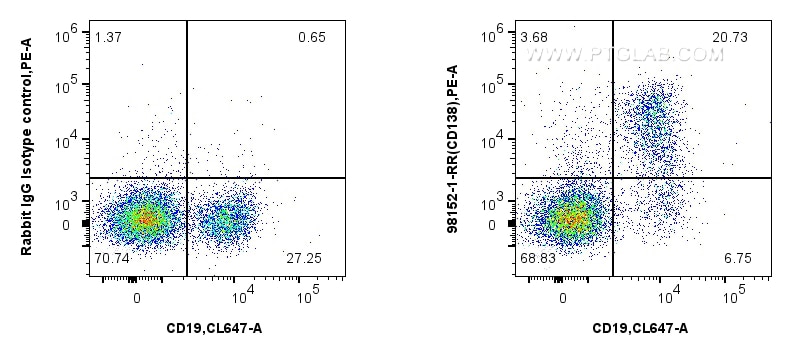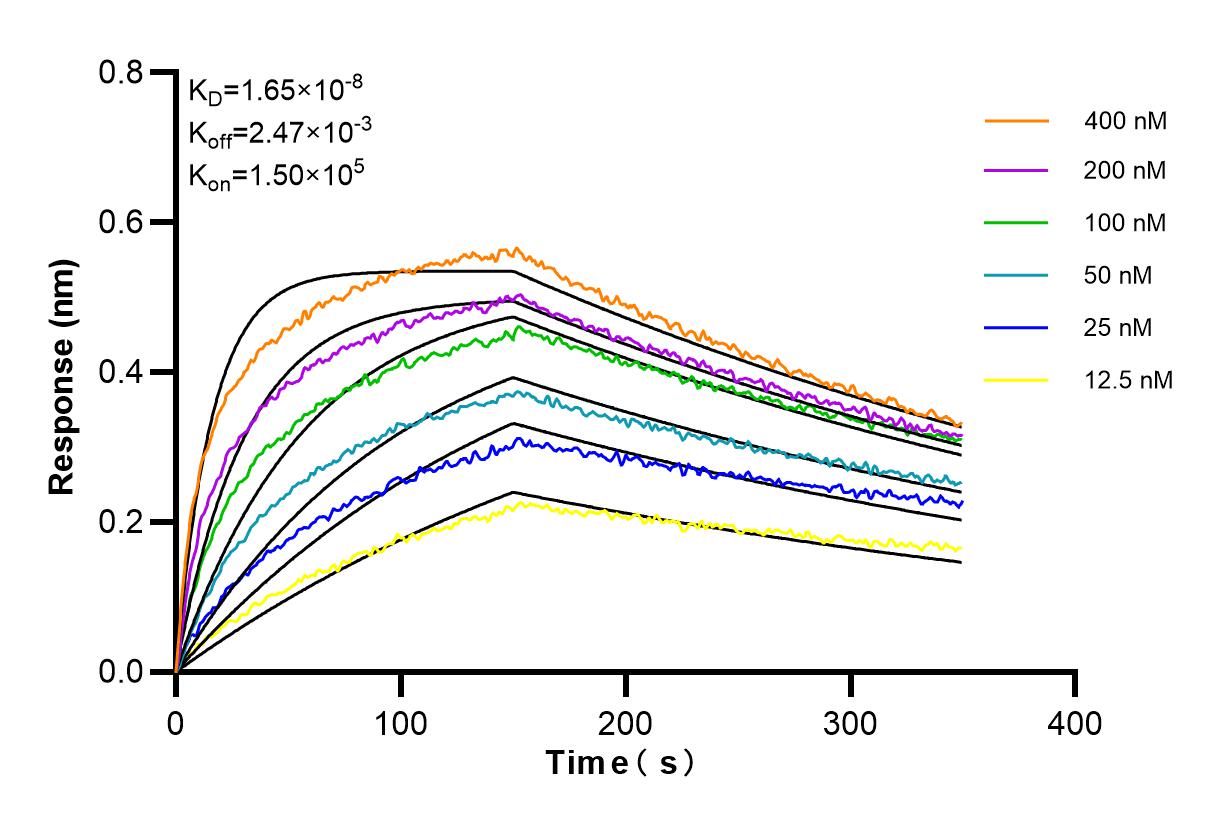Tested Applications
| Positive FC detected in | mouse bone marrow cells |
Recommended dilution
| Application | Dilution |
|---|---|
| Flow Cytometry (FC) | FC : 0.25 ug per 10^6 cells in 100 μl suspension |
| This reagent has been tested for flow cytometric analysis. It is recommended that this reagent should be titrated in each testing system to obtain optimal results. | |
| Sample-dependent, Check data in validation data gallery. | |
Product Information
98152-1-RR targets CD138/Syndecan-1 in FC applications and shows reactivity with mouse samples.
| Tested Reactivity | mouse |
| Host / Isotype | Rabbit / IgG |
| Class | Recombinant |
| Type | Antibody |
| Immunogen |
Fusion Protein Predict reactive species |
| Full Name | syndecan 1 |
| Calculated Molecular Weight | 33 kDa |
| GenBank Accession Number | NM_011519.2 |
| Gene Symbol | Sdc1 |
| Gene ID (NCBI) | 20969 |
| RRID | AB_3672295 |
| Conjugate | Unconjugated |
| Form | Liquid |
| Purification Method | Protein A purfication |
| UNIPROT ID | P18828-1 |
| Storage Buffer | PBS with 0.09% sodium azide, pH 7.3. |
| Storage Conditions | Store at 2 - 8°C. Stable for one year after shipment. |
Background Information
CD138, also named as Syndecan-1 (SDC1), is an integral membrane protein. It participates in cell proliferation, cell migration and cell-matrix interactions via its receptor for extracellular matrix proteins. It is a heparan sulfate proteoglycan expressed on the surface of, and actively shed by, myeloma cells. Altered syndecan-1 expression has been detected in several different tumor types. CD138 was regarded as a useful marker for labeling normal and neoplastic plasma cells and plasmacytoid lymphomas.
Protocols
| Product Specific Protocols | |
|---|---|
| FC protocol for CD138/Syndecan-1 antibody 98152-1-RR | Download protocol |
| Standard Protocols | |
|---|---|
| Click here to view our Standard Protocols |








